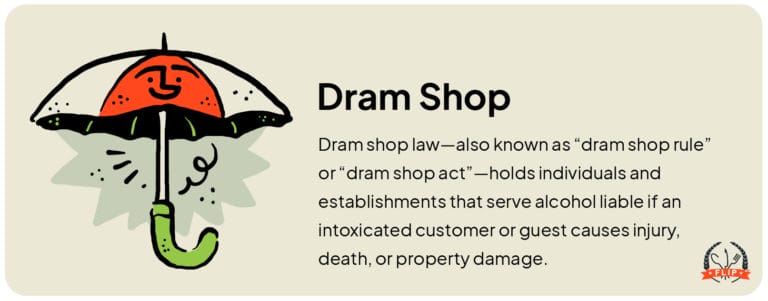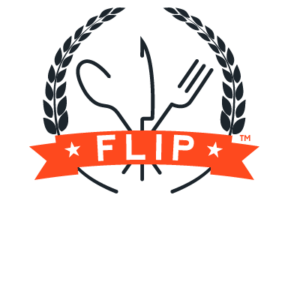Dram Shop
What Is Dram Shop Law?
Dram shop law—also known as “dram shop rule” or “dram shop act”—holds individuals and establishments that serve alcohol liable if an intoxicated customer or guest causes injury, death, or property damage.
While the details vary between states, dram shop laws typically address the serving of alcohol to a minor or a person already intoxicated.

Why Is It Called a Dram Shop?
The term “dram” originates from a 16th-century unit of measure used for alcohol. A dram shop is a business or establishment that sells alcoholic beverages. This can include:
- Bars
- Restaurants
- Liquor stores
- Breweries and wineries
- Convenience stores
- Catering companies that serve alcohol
- Mobile bartending businesses
What States Have Dram Shop Laws?
Every state in the US has dram shop laws except:
- Delaware
- Kansas
- Louisiana
- Maryland
- Nebraska
- Nevada
- South Dakota
- Virginia
Dram shop laws vary by state, so you should always learn the local regulations before serving alcohol.
In addition to laws for businesses, 32 states have social host liability laws that hold event hosts liable for harm caused by intoxicated guests.
What Are Examples of Dram Shop Claims?
There are a variety of circumstances that could result in dram shop liability for businesses or individuals that serve alcohol.
Here are a few examples to illustrate what might qualify:
- A server accidentally serves a minor who causes a car accident on the way home.
- A bartender sells multiple drinks to a customer who is already visibly intoxicated. The patron starts a fistfight and injures three people.
- A party guest has several drinks over a few hours. When leaving, they back their car into the venue’s deck and cause extreme property damage.
Each of these scenarios could result in a dram shop claim against the bartender, the establishment, or the host.
Does FLIP Provide Dram Shop Insurance?
Food Liability Insurance Program (FLIP) offers dram shop insurance, aka liquor liability. This covers third-party bodily injury and property damage claims resulting from serving, selling, or providing alcohol to customers or guests.

